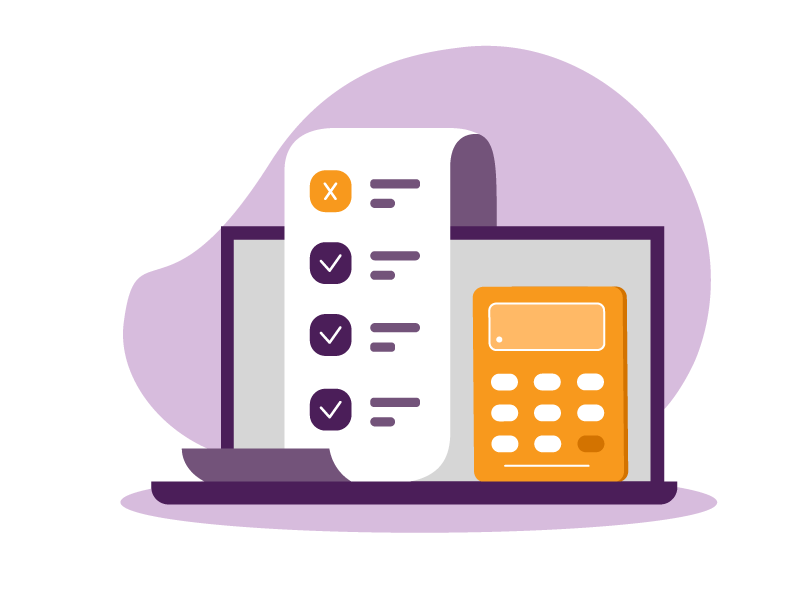PREPARING FOR DEPLOYMENT
If you’re about to deploy, there are two key financial aspects to consider before you deploy; putting your personal finances in order to avoid putting yourself or your family under financial stress, and making the most of your deployment income.
Watch this video before you deploy to learn how to make the most out of your deployment income using our tips and useful information.
An opportunity to fast track your finances
A deployment can be a great opportunity to improve your financial position but it’s probably best to postpone making any big financial decisions until you return and have more time to think about your options. Your income is likely to increase significantly with additional deployment allowances, and depending on where you deploy, it may be tax free. This boost to your budget can be a great opportunity for you to get ahead financially. In fact, many ADF members have been able to put themselves and their family years ahead of where they would have been without the deployment.
However, immediately before, during, or immediately after a deployment is probably not the best time to be making important financial decisions, you’ll have many other things on your mind. There’s no rush to spend what you worked hard for.
Wait until you know exactly what you have and then take the time to properly consider how best to make use of your money. Never commit your money before you’ve actually received it because force assignments can change, deployments can be cut short.
Getting ready to deploy
Most people have a range of bills, credit card and loan payments that need to be paid on a regular basis. Paying bills and loan repayments on time is critical if you want to avoid late fees and interest charges. Late payments can also affect your credit rating. We have seen too many ADF members inadvertently damage their credit rating or incur large penalties because they forgot one or more bills or loan repayments. Here’s some tips on how to avoid this:

Banking
Make a list of all your bank accounts, including savings accounts and term deposits. Share the list with someone you trust, like a spouse, family member or close friend, or let them know where the list is so it can be located if necessary.
Decide whether you want your spouse or partner to have access to your bank accounts, or whether it would be easier to say, have a joint account for bill payments.

Family budgets
When you deploy, your income and expenses may change. You may receive additional allowances and some expenses like food and transport may decrease. It’s important to think about the likely impact to the family budget and discuss it with your partner before you go.
If your income does increase and you have no high-interest debt, why not put the extra cash into a savings account, so it can go towards achieving a financial goal when you return? It will also make it easier adjusting back to a reduced income when you get home

Bills and debts
When you list all your bills and repayment obligations, don’t forget the ones you pay less frequently, like utility bills, car registration and insurance.
Setting up direct debits or credits to pay each account on or before the due date will ensure you don’t miss a payment. It’s a good idea to maintain a minimum balance in your bills account and just keep an eye on your balance if you know a large expense is due for payment. You don’t want to come home to late fees, interest and debt collectors.
Similarly, make sure any loan repayments have been automated so you continue to meet your repayment obligations while you are away.
If you receive your bills via email, consider whether you want to give someone you trust access to your email while you’re away, just in case you’re unable to access them yourself.

Credit cards
If you pay for things on a credit card, don’t forget to make sure the credit card gets paid. Setting up a direct debit to pay the balance in full each month, on the due date, will save you from interest and late payment fees.

Suspend services you don’t need
When you look at your list of regular bills, consider whether there are some services, such as internet, streaming services or memberships, that you could suspend while you are away. This could save you a bit of money by not paying for things you won’t be using.
If you do get services suspended, get the agreement in writing, and keep an eye on your inbox just in case the bills keep turning up.

Foreign currency
If you plan on spending money overseas, find out what currencies are accepted in the countries you will be spending time in and decide whether you want to take an amount of foreign currency with you.
Will
A will is a legal document that states how you would like your assets distributed when you die. If you die without a valid will you will be said to have died intestate and your assets will be distributed according to intestacy laws in your state, which may not be in line with your wishes. We think it’s vital that all serving ADF members have a valid, up to date will. See Wills for more information about how to create a will.
Power of Attorney (POA)
When you grant someone a POA, you are giving them the power to manage your money on your behalf. That means they can operate your bank accounts, buy or dispose of assets, and make financial decisions as if they were you. You can limit a POA, for example it could come into effect on the day you deploy and cease the day you get back. It requires careful consideration. See Power of Attorney for more detailed information of this area.
Legal advice
Your first point of call for legal issues should be Defence Counsel Services, which provides independent, free legal support to ADF members. They can arrange legal assistance for ADF members dealing with:
- Trial before a court martial or Defence Force magistrate
- Notice to show cause for administrative action
- Redress of grievance
- Medical employment category review board proceedings
- Compensation for detriment caused by defective administration
- Preparing a will
- Civilian legal matters such as family law (limited to preliminary information)
You can contact Defence Counsel Services by:
Phone: 1800 563 563 or 02 6266 1190 (overseas only)
Email (legal assistance): [email protected]
Email (wills): [email protected]
Check your insurance
Insurance is a way of managing risk. It’s a good idea to check your insurance from time to time but this is particularly important when you’re about to deploy.
Common types of insurance ADF members should check before they deploy include:
- Car insurance
- Home and contents insurance
- Health insurance (for family members)
- Mobile phone, tablet and laptop insurance
If you plan on leaving your home vacant with your possessions still inside, check with your insurer that you will still be covered. Some home and/or contents insurance policies do not provide cover when the owner or occupant is away for more than a certain period.
For cover to continue, there may be conditions placed on you, for example, you may need a friend or family member to regularly visit your home and collect any mail while it’s vacant. These conditions often represent a change to the contract of insurance so make sure you get the agreement in writing.
If you have insurance for personal devices like a laptop or mobile phone that you plan to take with you, find out if you’ll still be covered if you take the device overseas.
Make sure your cover is up to date and that insured values are current.
For more information see Insurance
Tax
Depending on where you are deploying to, and for how long, you may not pay tax on some of your earnings. While paying no tax for a period is generally a positive for you, it can throw up a range of issues which you may need further information and advice on, for example if you:
- Receive income assessed benefits – tax free income may lower your taxable income for the assessment of family tax benefits, child care rebates and other benefits. Contact Centrelink to find out how you might be affected
- Pay child support – you may have to share your additional deployment income and allowances with your child’s other parent. Contact Child Support if this relates to you
- Claim tax deductions – earning some tax-exempt income may change some of the claims you can legitimately make
- Have salary packaging arrangements – these may be affected by your absence or may be less tax effective
- Salary sacrifice into superannuation – these contributions are taxed at 15% when received by the fund, which may make them less tax effective. Consider your annual taxable income and annual super contributions
- Are eligible for an MSBS retention benefit while on deployment – how you elect to take it and when it is actually paid may affect how your benefit is taxed
These issues can be complex and need to be considered carefully. If you think you may be affected by any of these or other taxation issues, we suggest you seek independent professional tax advice from a suitably qualified accountant.
Tax due while you’re deployed?
In Australia, the income tax (financial) year runs from 1 July to 30 June. Individuals completing their own tax return must lodge their return by 31 October each year. If you are using a tax agent or accountant, you will have until 31 March the following year.
If your tax return will be due while you are on deployment, make arrangements with an accountant or registered tax agent to lodge it on your behalf by the due date, or call the Australian Tax Office (ATO) and ask for an extension.
See Income Tax for more information on income, deductions and how to lodge your tax return.
We wish you every success on your deployment. We hope that this guide has made preparing a little easier for you. Please contact us if you have any questions, and check out our post deployment guide for tips on making the most of your deployment income when you get back.
Tax Treatment of Overseas Service Income
While Defence does not provide personal financial and tax advice, the following key Defence and Australian Tax Office educational links (including to the Defence Tax Management Office) are offered as guidance for members and their advisers:
Financial and Tax Advice
If you are in any doubt about the financial and tax implications arising from your deployment, we recommend seeking professional financial advice from a registered tax agent (RTA) / accountant / licensed financial adviser.
There is a complete list of RTAs at the following site maintained by the Tax Practitioners Board.
You should seek financial advice from a licensed financial adviser. There is a complete list of these at the following site maintained by the Australian Securities and Investments Commission (ASIC).
We also recommend that you should read the Getting Financial Advice section of our website. This link contains a short educational film about the financial advice industry, questions to ask of advisers and issues about which you should be aware when seeking advice (especially understanding its cost).
There is also a list of licensed financial advisers in our ADF Financial Advice Referral Program who have declared to Defence that they do not receive commissions or other forms of conflicted remuneration.

